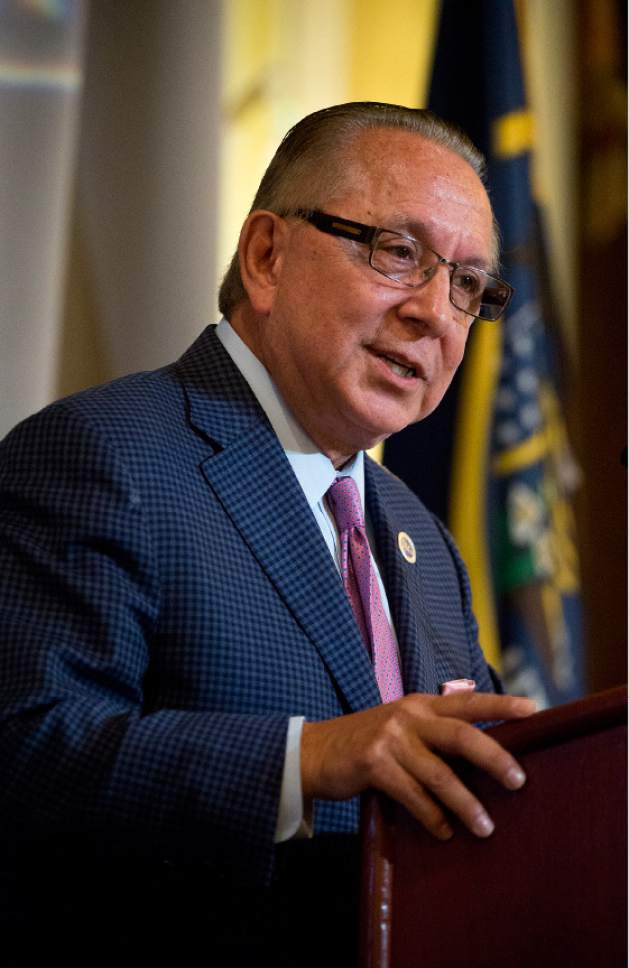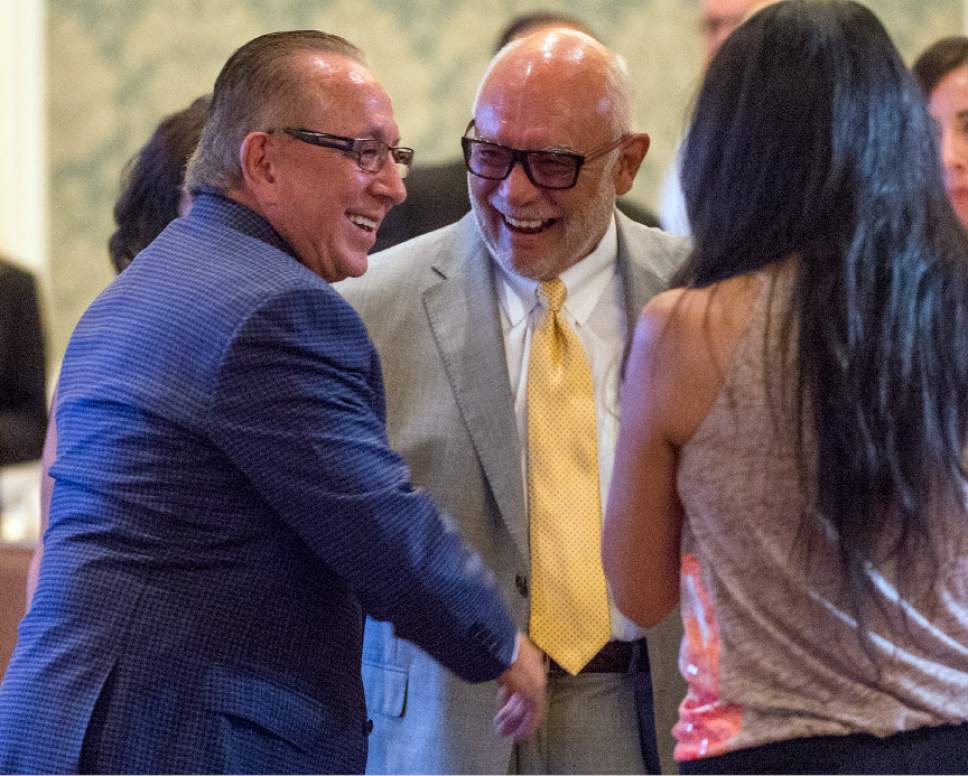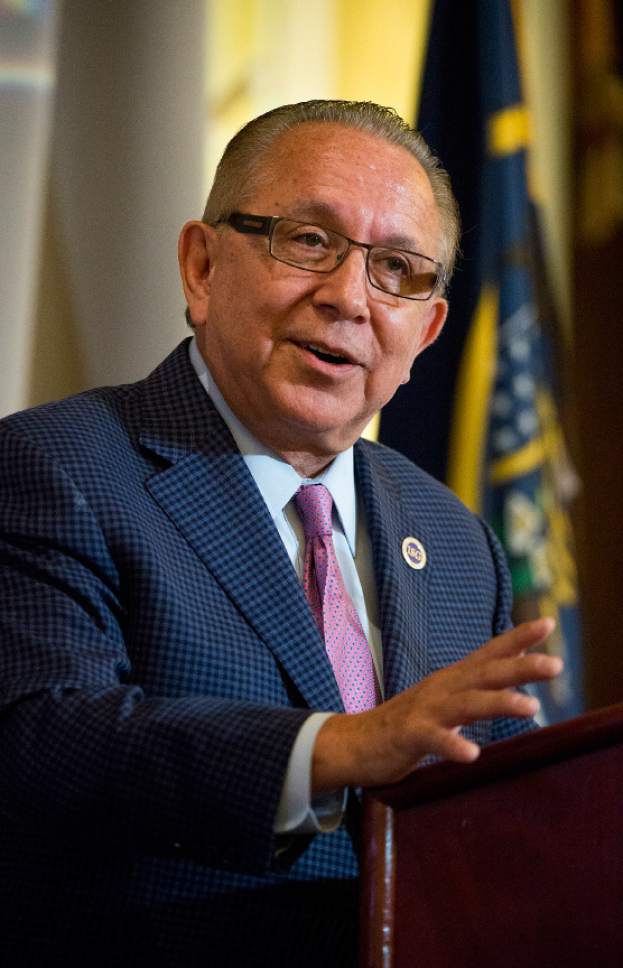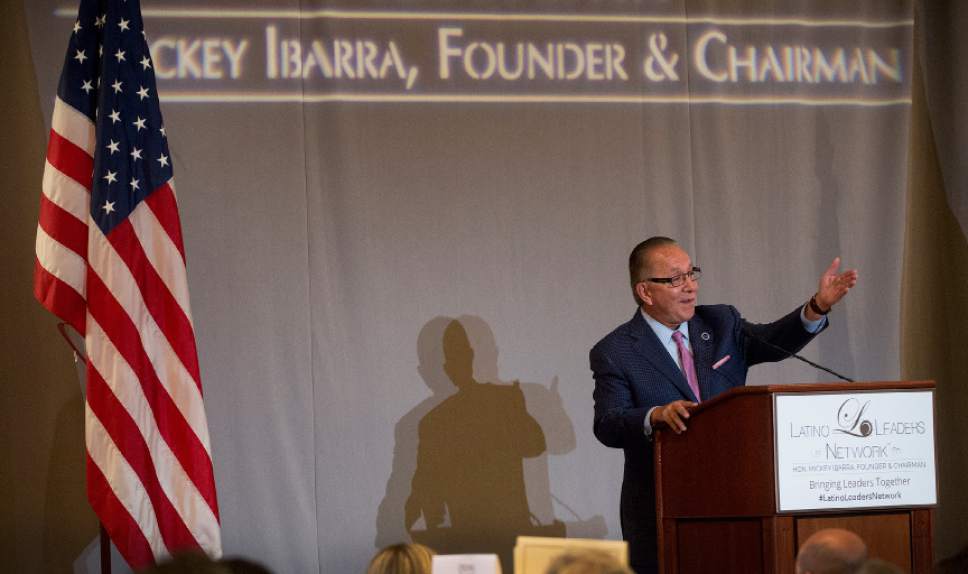This is an archived article that was published on sltrib.com in 2017, and information in the article may be outdated. It is provided only for personal research purposes and may not be reprinted.
A political veteran who climbed from humble beginnings in Salt Lake City to an advisory position in the White House told hundreds gathered at a private luncheon Thursday that "if it happened to me, it can happen to you."
"Only in America could a Mexican kid from Salt Lake City, Utah, who grew up in Utah foster care, end up being a witness to history working alongside the president of the United States," Mickey Ibarra said.
"If it happened to me, it can happen to you."
Ibarra elicited a standing ovation as he approached the podium at the Latino Leaders Luncheon Series event at the Grand America Hotel in Salt Lake City. He worked in President Bill Clinton's administration and founded the advocacy group that hosted the event, the Latino Leaders Network.
"I was an assistant to the president of the United States and director of intergovernmental affairs before I ever mustered the courage to share my story," Ibarra told the crowd. "Our stories are powerful, and they need to be told. When we do, it gives others confidence, motivation, inspiration and hope that they, too, can succeed."
Ibarra and his younger brother David were born in Salt Lake City to a Mexican father of indigenous Zapotec heritage and to a white American teenage mother in the 1950s. His parents' marriage was socially unacceptable, he said, and after it ended, his 18-year-old mother placed the two young boys in the foster care system.
"For most of the first 15 years of my life, we were without a traditional family. As kids, we both wondered about who we were and why we were alone," Ibarra said. "And we coped with our experience very differently."
While he was a talkative peacemaker, his brother became "shy, reserved and angry" about their life in foster care, Ibarra said. His brother's skin was darker than his, and he was "confronted with discrimination and racism frequently."
When the boys were 15 and 14 years old, their father — who had maintained a relationship with his sons — invited them to live with him in Sacramento, Calif.
"The decision to leave Utah, reuniting with my father, was a game changer for both David and I," Ibarra said. "Doing so gave us the opportunity to gain self-awareness and help us find the identity missing in our lives."
From their father, the boys learned the value of hard work and to be proud of their heritage, Ibarra said. They were surprised at the number of Latinos who lived in Sacramento and "felt immediately more comfortable about our identity."
The brothers were active in sports and student government, and those experiences gave Ibarra a sense of purpose.
He went on to "shatter the glass ceiling" and has been inspiring Latinos his whole life, said master of ceremonies Maria Teresa Kumar, president of Voto Latino, a nonprofit organization that pushes young Latinos and Hispanics to be active in politics and to register to vote.
In the many different roles he's had, "the common thread for me is I am an advocate by profession," Ibarra said.
Clinton once told him that "winning is about addition and multiplication; losing is about subtraction and division," Ibarra said.
"Contrary to what you may witness from some in Washington today, that is still the best formula for success in leadership and in life," he told the crowd, which responded with applause.
Ibarra founded the Latino Leaders Network as a "platform to keep making a difference in the community."
The luncheons are a chance for Latino leaders to share their stories, Ibarra said.
Ibarra recently published "Latino Leaders Speak: Personal Stories of Struggle and Triumph," a book comprising 33 of those keynote addresses — stories of people he says are "role models," "heroes" and "outstanding leaders."
"At this time in our country's history, it's so important for us to share these stories," he said.
In order to achieve success in life, Ibarra said, he and his brother chose to "reject the notion and the label that we are disadvantaged." In an "unconventional way," the difficult experiences of his childhood may have been key to his success later in life, Ibarra said.
"Dream big," he told the crowd. "Get prepared and get ready to lead."
Twitter: @mnoblenews









